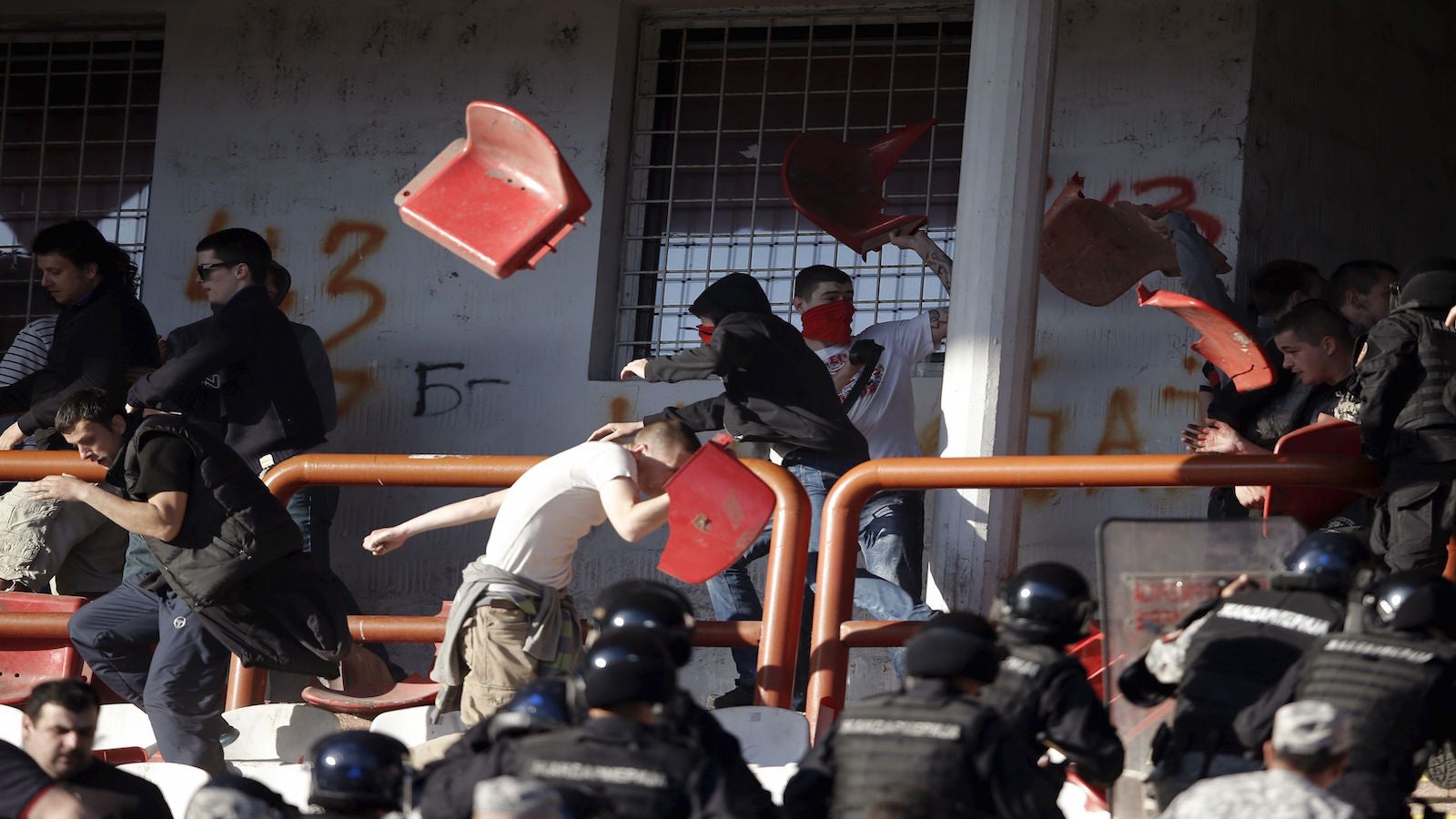This is one Brazilian team’s simple solution to ending soccer violence
In South American soccer, fans like a fight.


In South American soccer, fans like a fight.
Earlier this year, a soccer riot after the Rio de Janeiro state championship brought not only fights between opposing fans, but what the police called a “new phenomenon in Brazilian football: fights between fans of the same team.” In 1969, a post-game fight between fans of Honduras and El Salvador brought national hostilities to the fore and sparked the beginning of what became known as the ”football war.”
A Brazilian soccer team has now taken an unusual and extraordinary measure to curb hooliganism: to attend a match, fans of Sports Club Internacional (link in Portuguese) had to agree to walk with a fan of the opposing team to the stadium and then sit with that person for the whole game, according to Fast Company.
The Porto Alegre-based club said the policy was received well; it has already repeated the initiative in two more games. “Rivals on and off the field must live within the limits of respect and humanity,” Luiz Henrique Nuñez, the club’s president of media and marketing, told the magazine. ”It is still early to say that this action is able to stop the violence in stadiums in days of great rivalries. [But] we saw clearly that people have come to see the real possibility of change.”
In South America and Europe, soccer fans are generally segregated into home and away areas to prevent violence. This is especially true of teams with hardcore hooligan groups known as Ultras. In England, the police even try to move derbies (matches between teams from the same city) and big matches to prevent disorder in city centers. Not that that prevents fights, even in this relatively peaceful day and age.
Still, there are exceptions: Fulham’s stadium in London is well-known for its Putney End, which offers mixed seating for fans of both sides. For the most part, no violence breaks out at this small stadium on the banks of the Thames in West London.
Perhaps what Sports Club Internacional and Fulham prove is that if you treat fans with respect, the majority will behave. Conversely, if you treat fans like hooligans and thugs, is it a surprise if they behave like ones?